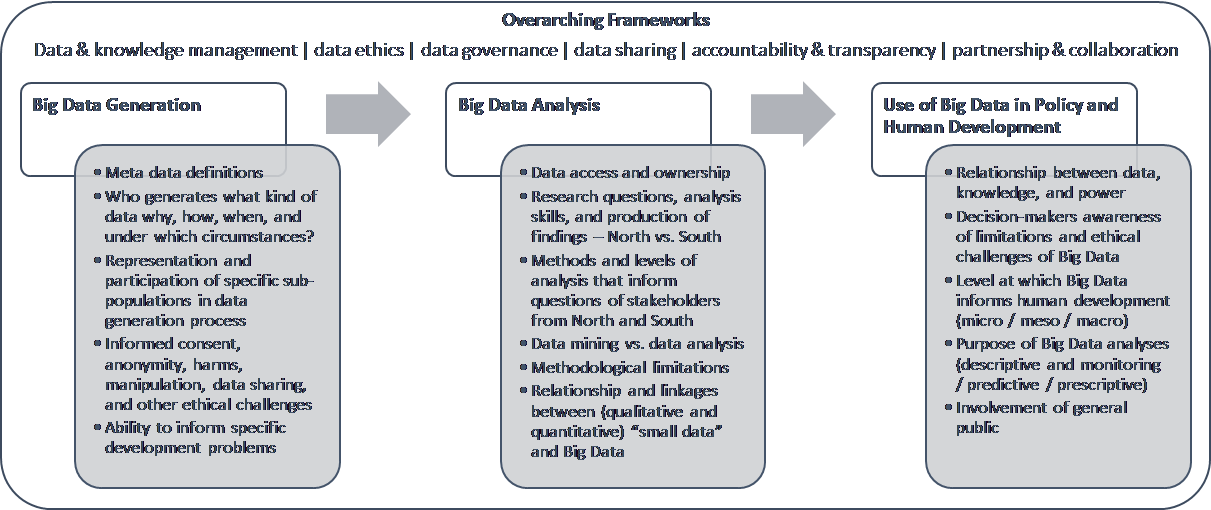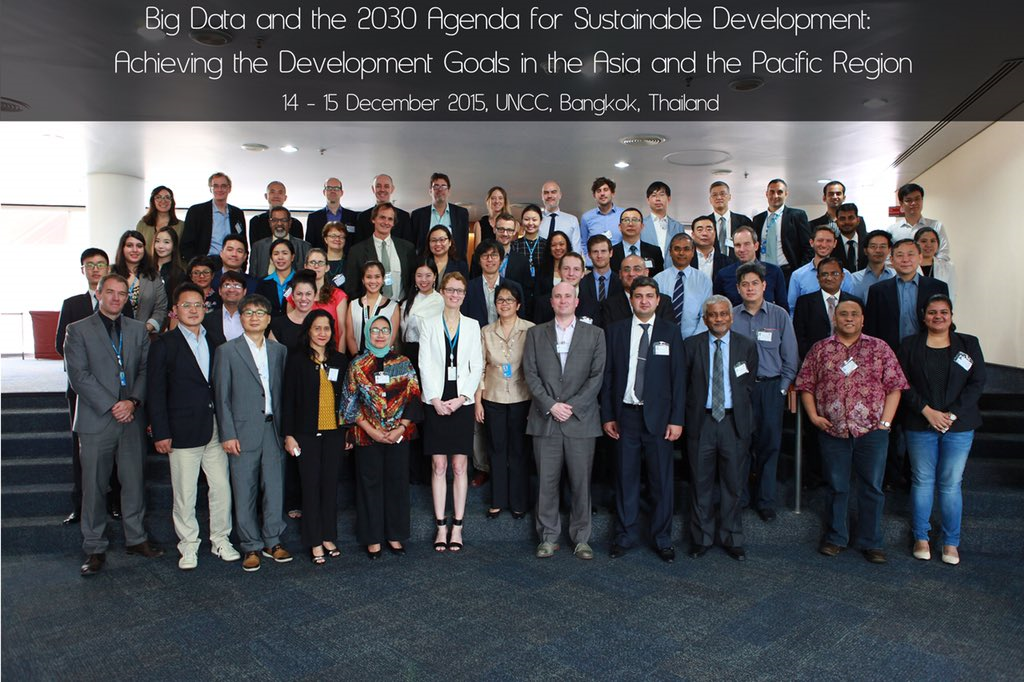This website uses cookies so that we can provide you with the best user experience possible. Cookie information is stored in your browser and performs functions such as recognising you when you return to our website and helping our team to understand which sections of the website you find most interesting and useful.
23 Dec 2015
Participants at the UN Expert Group Meeting on “Big Data and the 2030 Agenda for Sustainable Development”
(Photo credit: Eri Nomikou, https://twitter.com/ENomikou/status/676274507384938496)
With a critical view on “Big Data” and “human development” across low-, middle-, and high-income countries, we position ourselves as a unique research network in the expanding Big Data and development landscape. Having returned from a recent United Nations Expert Group Meeting on “Big Data and the 2030 Agenda for Sustainable Development,” I believe that a key contribution of our network is to foster a North-South dialogue and to offer multidisciplinary perspectives and competencies that are largely under-represented among the existing Big Data actors.
Make no mistake: The debate at this high-level forum was nuanced and critical rather than focused on utopian ideas about the limitless potential of big data. Actors from the public, private, and academic sectors agreed that we first need to focus on the development problems and then solve the respective data needs, not the other way round. Problems of data solution “patchwork,” data privacy and consent, viable private sector business models for public-private partnerships in big data, or closed versus open data environments were debated openly and honestly.
But it is also clear that many issues surrounding big data remain unresolved and require critical reflection and research. For example, because the skills and capacity to produce, handle, and analyse Big Data are likely to rest outside of government boundaries, increasing the use of Big Data in policy can be problematic. While often framed under broadening participation (e.g. Twitter data), “partnerships” for a wider data ecosystem, and private sector “data philanthropy” (i.e. companies donating data), private partners might also have vested interests to shape and select the data and indicators that correspond to desired policy changes from their perspective. This could mean a transfer of knowledge and power from the public to the private sector. How could we then ensure that transparency and accountability mechanisms apply to the same extent to private actors as to public ones? Even where such situations do not occur, continuity and reliability in such partnerships are not guaranteed. For example, voluntary donation of data by a company may be useful, but once economic constraints tighten, how would that company be prevented from stopping this practice in order to keep costs in check? How would private data sharing agreements alter if the company is bought by a competitor? What if national development policies are based on data provided by a company that is about to go bankrupt (the same applies to NGOs with erratic income streams)?
My point here is not that Big Data uses for development policy should be discouraged, but that we need to have a better grasp of such fundamental questions before we advocate alterations of fundamental policy processes in favour of non-conventional data (even existing “conventional” data appears widely underutilised). Among the numerous problem areas surfacing at the Expert Group Meeting was the need for overarching frameworks (e.g. ethical, evaluation, data governance, and knowledge management frameworks) and for a better problem-specific and micro-level understanding of Big Data’s opportunities and intrinsic limitations (e.g. the social context of data generation, informational value of Big Data vs. conventional data to monitor specific Sustainable Development Goal indicators). The illustration below summarises some of the many themes that arose in the meeting.

Summary of Big Data problem areas
In my view, the high-level conversations at the Expert Group Meeting serve a useful purpose for putting “Big Data” on the policy agenda. What is needed next (and we are not quite there yet) is to build a knowledge base to understand how and how not to use various kinds of data in development policy and processes. Countries may articulate data and knowledge demands for specific development problems, and work with other “stakeholders” in pilot projects to develop institutional frameworks and mechanisms to make the best use of Big Data in light of its limitations. One plausible scenario might be that Big Data solutions help governments to save money when monitoring variations in development indicators for a majority group in urban areas (e.g. mobile phone data on economic performance and incomes), but the costs saved for data collection in one area should then be reinvested in order to understand the problems of the groups omitted by these data sources (e.g. remote and disconnected population groups). (Pilot projects, despite their seemingly poor reputation at the meeting, can help to build such knowledge, provided that evaluation frameworks are developed to articulate the learning outcomes up-front.)
The participation in a debate among experts has reinforced my conviction that research networks like ours are an indispensable ingredient to a more comprehensive understanding of Big Data. It is especially the North-South dialogue and the interdisciplinary expertise in our network that can open new perspectives and add much-needed depth to a Big Data debate that is still taking place at a high level.

